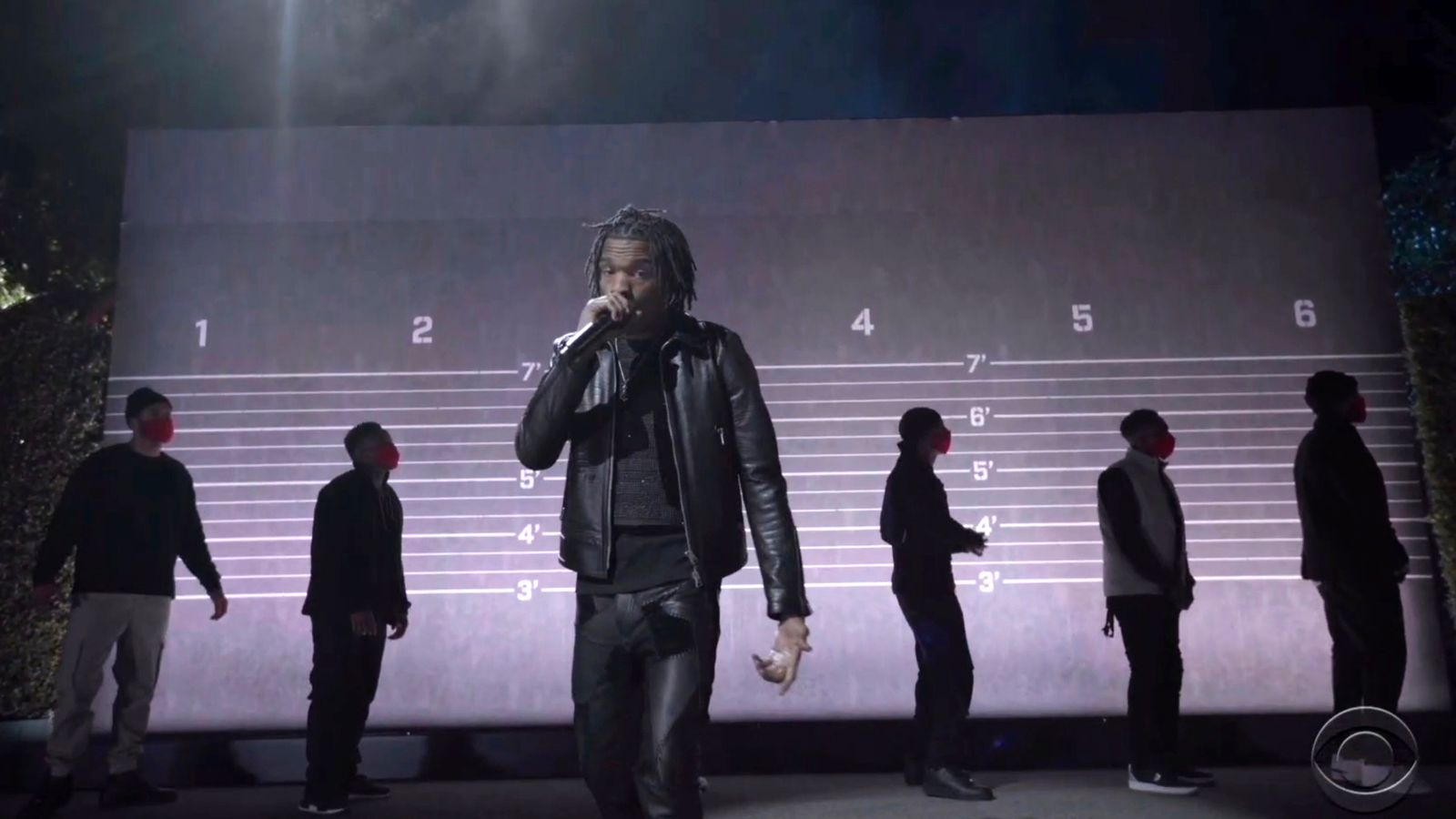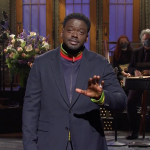Police brutality against unarmed black people was put centre stage at this year’s Grammys, with performers and winners using their platforms to speak out on racial equality.
In a powerful performance directly referencing police brutality against black people, Lil Baby performed his track The Bigger Picture at this year’s ceremony.
Opening with a scene of black man being arrested and knelt on by a police officer, before being shot in the back, his track addressed the treatment of black people in the US.
You can read all the winners from the 63rd Annual Grammy Awards here
He was backed by scenes depicting the realities of life for many black people in the country, as well as burning buildings that mirrored the riots triggered by the killing of George Floyd.
Lil Baby was joined by activist Tamika Mallory during the performance, who gave a speech saying: “It’s a state of emergency. It’s been a hell of year. Hell for over 400 years.
“My people, it’s time we stand, it’s time we demand the freedom that this land promises.”
The rapper then rounded off his performance by jumping on a police car, flanked by Mallory and Killer Mike.
Also highlighting racial equality was country artist Mickey Guyton, who gave a performance of her track Black Like Me.
The song, which was nominated in the best country solo performance category, was released last June at the height of the Black Lives Matter protests and the coronavirus pandemic, and highlights racial inequality, and her experience as a black woman on the country music scene.
The chorus features the lyrics: “If you think we live in the land of the free/You should try to be black like me”.
Dream team! I couldn't have done this without every single person on that stage. It was so special to be able to perform "Black Like Me", a song that is so so special to me. Sharing this moment together is something I will never forget. 🖤 #GRAMMYs pic.twitter.com/3A2NzrNiFT
In what is the first major music event since the killings of Breonna Taylor and George Floyd at the hands of police last year, black artists were recognised across in a number of categories.
Notably, H.E.R took home the award for song of the year – considered one of the top four awards – for the track I Can’t Breathe, an anthem she wrote in response to the killing of George Floyd.
Accepting the award, she said: “We wrote this song over FaceTime, and I didn’t imagine that my fear and that my pain would turn into impact and it would possibly turn into change.
“Remember, we are the change that we wish to see. That fight that we had in us in the summer of 2020, keep that same energy.”
Beyoncé was also recognised at the ceremony, picking up awards for her track Black Parade, which references black history, pride, activism and culture.
It was widely praised upon its release on Juneteenth (the US holiday marking the end of slavery), due to its celebration of black culture, coupled with its condemnation of racism and police brutality.
“I wanted to uplift, encourage and celebrate all the beautiful black kings and queens who have inspired me and the whole world,” she said while accepting the award.
Her wins on Sunday night made her the most decorated woman in Grammy’s history, with 28 awards.






















